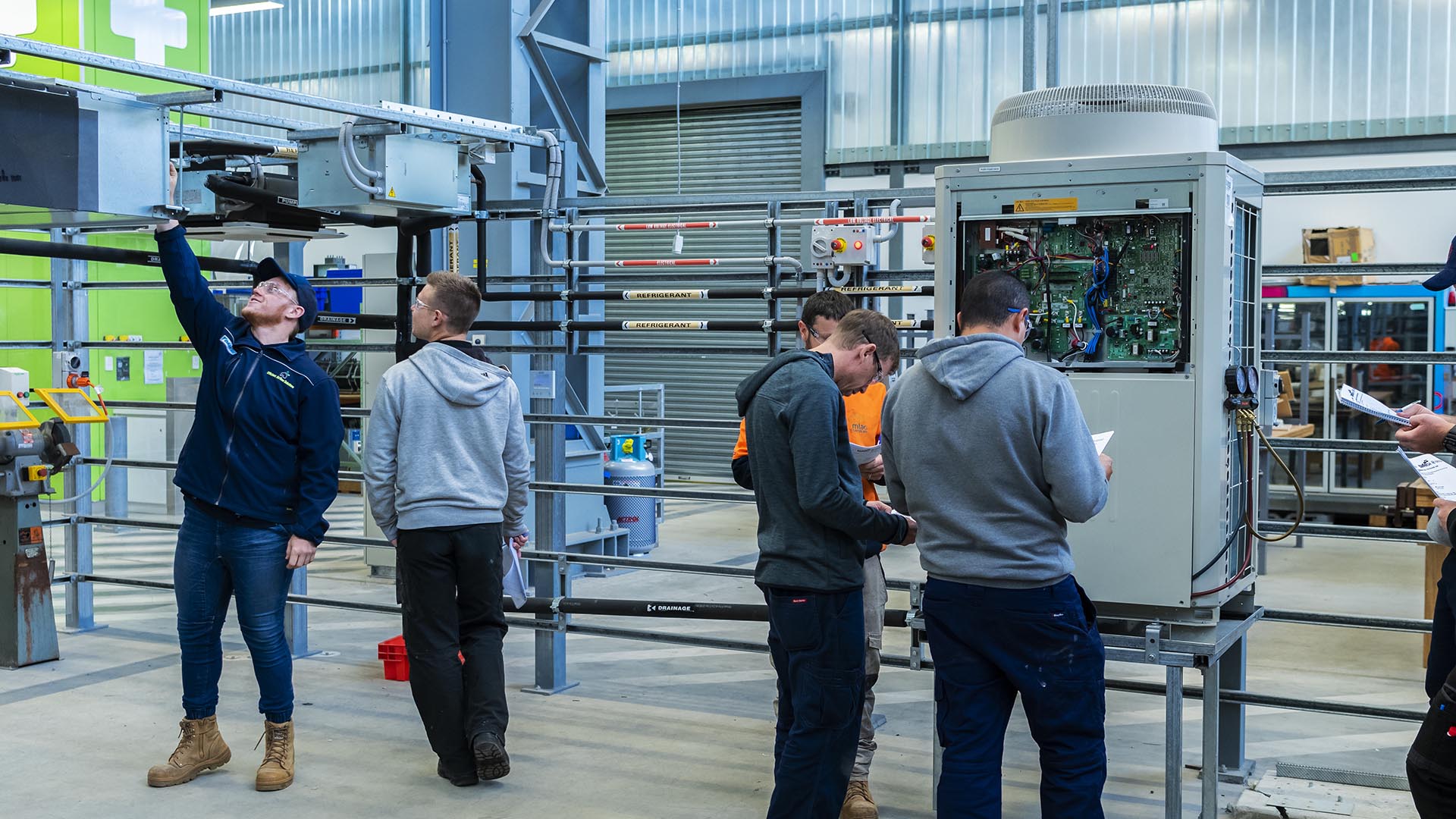Have your say on the future of HVAC&R qualifications
The training courses for air conditioning and refrigeration technicians are under review, and industry stakeholders are invited to share their views via a short survey.

Powering Skills Organisation (PSO) in conjunction with the Australian Refrigeration Council (ARC), the Australian Institute of Refrigeration, Air Conditioning and Heating (AIRAH), and the Air Conditioning and Mechanical Contractors Association (AMCA) is running a survey to support the ongoing development of the HVAC&R qualifications offered by TAFEs and registered training organisations (RTOs).
The survey will support a larger body of work that PSO is conducting to review all products in the electrotechnology (UEE) training package.
“Your feedback is essential to ensure the outcomes of this work reflect the needs of industry and support the HVAC&R workforce that is prepared for current and emerging challenges,” says PSO.
The survey should take about 10 minutes to complete and can be accessed via this link.
PREV
NEXT
Comments
-
The traditional one-size-fits-all four-year HVAC apprenticeship no longer reflects the diverse needs of today’s workforce or the evolving structure of the HVAC industry. Many young apprentices are deterred by the length and rigid format of the training, especially when modern technologies and diagnostic tools have simplified many tasks once considered complex. With a generation that values speed, flexibility, and relevance, there is a compelling case for a condensed two-year apprenticeship model that focuses on core skills, hands-on learning, and real-world readiness. Coupled with structured mentorship and targeted workplace exposure, this approach can accelerate competency without compromising safety or professionalism.
Beyond this, the future of HVAC training should include modular, stackable “add-on” style certificates that allow workers to specialise in particular systems or capacities. For example, short courses could be designed for split systems under 30kW, chillers, VRF/VRV systems, refrigerated display cabinets, or specific compliance areas such as fire safety integration or controlled environments. These micro-credentials would not only allow technicians to qualify faster in core areas but also create pathways to upskill in targeted fields as needed. This approach aligns more closely with modern business models, where some companies focus purely on domestic DX systems, while others specialise in commercial chillers or refrigeration. By tailoring qualifications to real industry needs and job roles, we can create a more agile, efficient, and appealing pathway into the trades—one that directly addresses the critical skills shortage and modernises our workforce development.
-
G’day Steven
I couldn’t disagree more, the Refrigeration trade was once a five year apprenticeship, due to the complicity and content of the trade.
To diminish the apprenticeship training by removing any of the modules or reducing its volume of content, would not be a good idea. There are short courses being provided for the electrical & plumbing trades that already devalue the HVAC&R trade.
I think pre apprentice training courses are a plus, but to go down the path of having Fridgies lessen their capabilities would be like the electrical trades giving ground on the Refrigeration electrical license and allowing Fridgies to run cable !The Refrigeration trade needs to be licensed nationally, under a federal controlled body.
Cheers
Advertisements
Recent news
- NCC 2025 comes into focus
- Opportunities and obstacles on the road to electrification
- The quest for a better NCC
Latest events
- Final call for 2026 ARBS Awards nominations
- Dates announced for 2026 AIRAH Golf Days
- Abstracts open for IAQ26
 Mark Vender
Mark Vender

Leave a Reply to Steven Smith Cancel reply